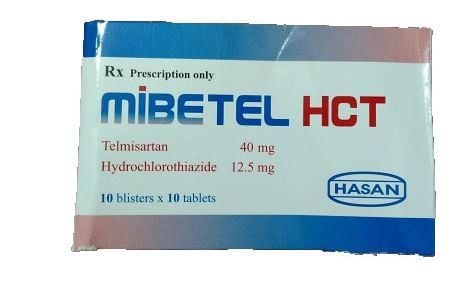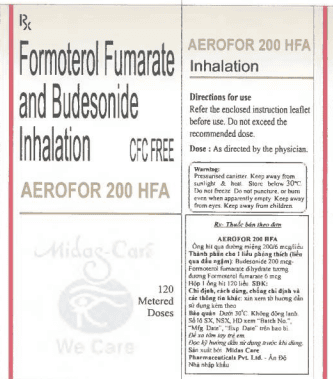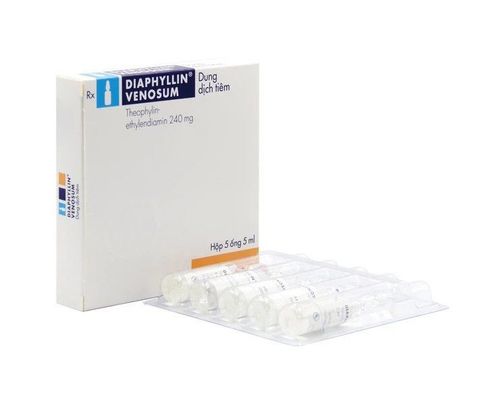This is an automatically translated article.
Articles written by MSc, BS. Le Thi Thanh Huong, Emergency Department - Vinmec Central Park International General Hospital
Chest pain is a sign of many diseases from the chest wall, lungs, pleura, stomach to serious problems of cardiovascular disease... Therefore, learning about this symptom has the potential to help You can take early countermeasures from the very beginning, and at the same time limit the occurrence of dangerous complications.
1. Causes of chest pain
Chest pain symptoms are related to many different health problems. These diseases are classified into 4 main groups:
1.1. Due to Cardiovascular Diseases Most of the time, chest pain is closely related to heart diseases. These can be mentioned as:
Chest pain can be a sign of a number of chronic heart diseases: Hypertrophic cardiomyopathy, Mitral regurgitation... Chest pain can also be a dangerous sign of some diseases. Acute heart disease: Pericarditis, Pulmonary hypertension and especially serious for fulminant heart diseases: Myocarditis, Myocardial infarction, Aortic dissection, because of high mortality. Myocarditis : this condition can lead to pain in the middle of the chest and gradually spreading to the sides, accompanied by symptoms of heart palpitations, shortness of breath, fever... Myocardial infarction : a condition where blood clots form In the capillaries, obstructing blood flow to the heart, it can cause left angina attacks, accompanied by symptoms of arrhythmia, sweating, fatigue... Aortic dissection: human patients can feel severe pain in the area below the sternum, shortness of breath, confusion... due to ischemia by the separation of tissue layers in the aorta. This condition has a high risk of directly leading to death if not treated promptly. 1.2. Due to diseases of the lungs - pleura Besides the heart, problems arising in the respiratory system, mainly the lungs, can also affect the ribcage causing chest pain. These conditions may include:
Asthma Pneumonia Atelectasis Tuberculosis Pulmonary embolism Pleurisy Pleurisy Chest pain and shortness of breath are typical of this case. The site of pain may originate in the center of the chest and rapidly extend to one or both sides. In addition, angina will often be accompanied by some other common symptoms such as a fast heartbeat, a lot of cough (may have sputum or cough up blood), fever, chills...

1.3. Due to gastrointestinal problems Usually, health problems in the digestive system only cause pain in the abdomen. However, when the disease is advanced, the range of pain can extend to the chest.
The most common is gastroesophageal reflux disease (GERD), gastritis. Sometimes encountered in the following cases: esophageal spasm, pancreatitis... 1.4. Due to the disease of the chest wall or some other underlying disease Muscle strain or tendonitis around the ribs is easy to lead to persistent chest pain. In addition, the presence of pain here is likely to come from problems in the ribs, including fractures and fractures. On the other hand, many doctors think that the pain in the right chest caused by arthritis of the costal cartilage and the chest pain caused by cardiovascular disease are somewhat similar, so it is easy to be confused. In addition, the sensation of chest pain sometimes originates from shingles (shingles). In this case, the pain may appear along the chest or back before the rash appears. On the other hand, the sudden appearance of panic attacks, anxiety disorders (panic attacks) can also lead to a series of unpleasant symptoms such as chest pain, abdominal pain, increased heart rate, chills, tremors, and shortness of breath. a bit... Therefore, whatever the agent is behind, the patient should still go to the hospital soon to check in order to limit the occurrence of unintended complications.
2. Are chest pain symptoms dangerous?
Everyone is at risk of chest pain, especially the elderly and those who have many unhealthy lifestyle habits such as smoking, poor diet... This affects not only to the overall health but also the life of the patient has to bear a heavy impact. In addition, there are too many dangerous diseases associated with chest pain symptoms. Therefore, doctors recommend that people quickly go to the hospital for examination, even an emergency if the body shows any of the following signs: Typical signs include:Chest discomfort: choking, heaviness, twisting, pain in the upper mid-chest for several minutes; Pain spreading: to the shoulder, arm, lower jaw, back or epigastrium; Other signs: shortness of breath, sweating, paleness, nausea, headache, lethargy, not alertness.

In women, the elderly, diabetes, sometimes there are no typical signs of chest pain above, but only symptoms:
Chest pain, burning or indigestion, bloating; Discomfort in the back, chin, neck or shoulders; Shortness of breath; Vomiting or nausea. In addition, when angina suddenly arises for no apparent reason, please consult your doctor. Because everyone's body is different, medical advice can help you choose the most suitable coping solution.
3. What should you do when you have chest pain?
When the patient has signs of dangerous chest pain, it is necessary to:
Let the patient lie down and call 911 or the nearest emergency unit number (if any); Call for help from people around, get a first aid kit and an automatic electric shock machine (AED) (if equipped in the emergency area); Have the patient chew and swallow an Aspirin tablet (usually included in the first-aid kit), if the victim is not allergic to Aspirin, and is not currently bleeding heavily and showing no signs of stroke; If the patient is comatose and unresponsive, cardiopulmonary resuscitation (CRP) should be performed (See also the Basic Cardiopulmonary Resuscitation First Aid Guide). For other chest pain symptoms, even if there are no dangerous manifestations mentioned above, you should not try to self-diagnose and take medicine, but should immediately go to a medical facility for timely diagnosis and treatment. Depending on the cause of the pain, your doctor may recommend one or more different treatments for each case.
4. Preventive measures to limit chest pain
In general, these health problems can be prevented by improving daily lifestyle. This change can include:Physical exercise for at least 30 minutes a day Building a healthy, scientific diet with lots of vegetables and fruits, limiting fat and salty foods Limiting eating or stay away from alcohol Quit smoking

To protect your health, you should check your general health regularly to detect health problems early and intervene in a timely manner. Currently, Vinmec International General Hospital has general health checkup packages suitable for each age, gender and individual needs of customers with a reasonable price policy, including:
Health checkup package general Vip Standard general health checkup package Patient's examination results will be returned to your home. After receiving the results of the general health examination, if you detect diseases that require intensive examination and treatment, you can use services from other specialties at the Hospital with quality treatment and services. outstanding customer service.
Please dial HOTLINE for more information or register for an appointment HERE. Download MyVinmec app to make appointments faster and to manage your bookings easily.














